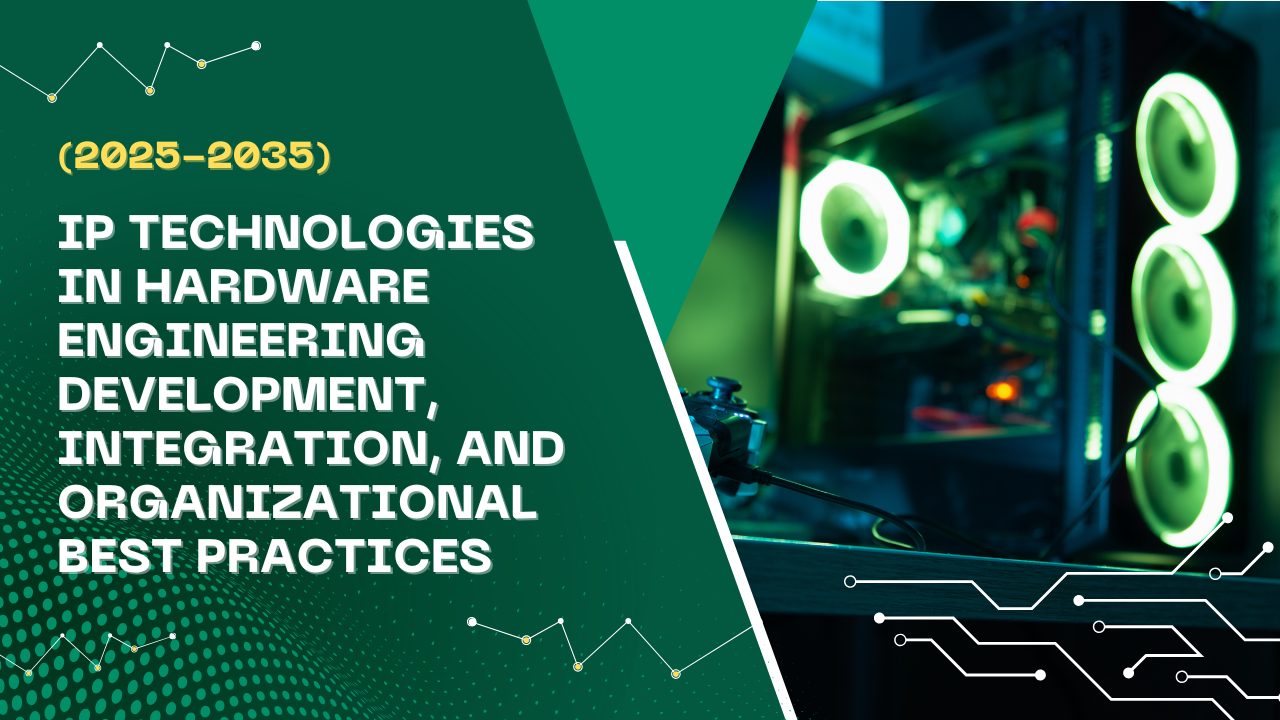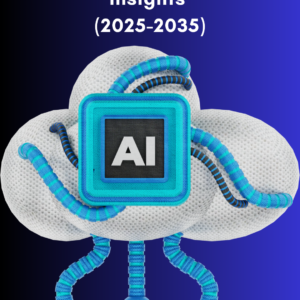1. Executive Summary
- Key trends in IP technologies for hardware engineering
- Critical factors in IP development and integration
- Organizational strategies for effective IP management
2. Overview of IP Technologies in Hardware Engineering
a. Compute IPs
- CPU cores (RISC, CISC architectures)
- GPU architectures
- AI and machine learning accelerators
- DSP (Digital Signal Processors)
b. Platform IPs
- Memory controllers
- Interconnect fabrics
- Power management units
- Security modules
c. Industry I/Os
- PCIe interfaces
- USB controllers
- Ethernet controllers
- Display interfaces (HDMI, DisplayPort)
3. IP Development Process
- Concept and specification phase
- Design and implementation
- Verification and validation
- Documentation and support
4. IP Integration into SoC Designs
- Challenges in IP integration
- Methodologies for seamless integration
- Verification of integrated IPs
- Performance optimization techniques
5. Organizational Structure for IP Development
a. Core IP Development Teams
- Typical team compositions
- Roles and responsibilities
- Required skill sets
b. Integration Teams
- Structure of SoC integration teams
- Collaboration models with IP teams
- Cross-functional coordination
c. Support Functions
- Verification and validation teams
- Documentation and technical writing
- IP lifecycle management
6. Team Sizes and Scaling
- Factors influencing team sizes
- Scaling strategies for large projects
- Resource allocation across different IP types
7. Best Practices in IP Development and Integration
- Modular design approaches
- Reusability and configurability
- Standardization of interfaces
- Continuous integration and testing
8. Challenges in IP Development and Integration
- Managing complexity in modern SoCs
- Keeping pace with technological advancements
- Balancing performance, power, and area (PPA)
- Ensuring compatibility across different process nodes
9. Emerging Trends in IP Technologies (2025-2035)
- Advanced packaging and chiplet architectures
- AI-driven design and optimization
- Open-source hardware initiatives
- Quantum computing interfaces
10. IP Ecosystem and Third-party IP Integration
- Evaluating and selecting third-party IPs
- Managing IP licenses and royalties
- Ensuring security and trust in third-party IPs
11. Tools and Methodologies
- EDA tools for IP development and integration
- Simulation and emulation platforms
- Version control and collaboration tools
12. Case Studies (Generalized)
- Successful large-scale IP integration projects
- Innovative approaches to IP development
- Lessons learned from challenging integrations
13. Future of IP Development in Hardware Engineering
- Projected advancements in IP technologies
- Potential disruptors in the IP ecosystem
- Long-term trends in hardware architecture
14. Strategic Recommendations
- Key considerations for building effective IP teams
- Strategies for fostering innovation in IP development
- Best practices for managing IP portfolios
15. Conclusion
- Summary of key insights on IP technologies and organization
- Outlook for IP development in hardware engineering
16. Appendices
- Glossary of IP and hardware engineering terms
- Sample organizational charts for IP development teams
- Checklist for IP integration processes





